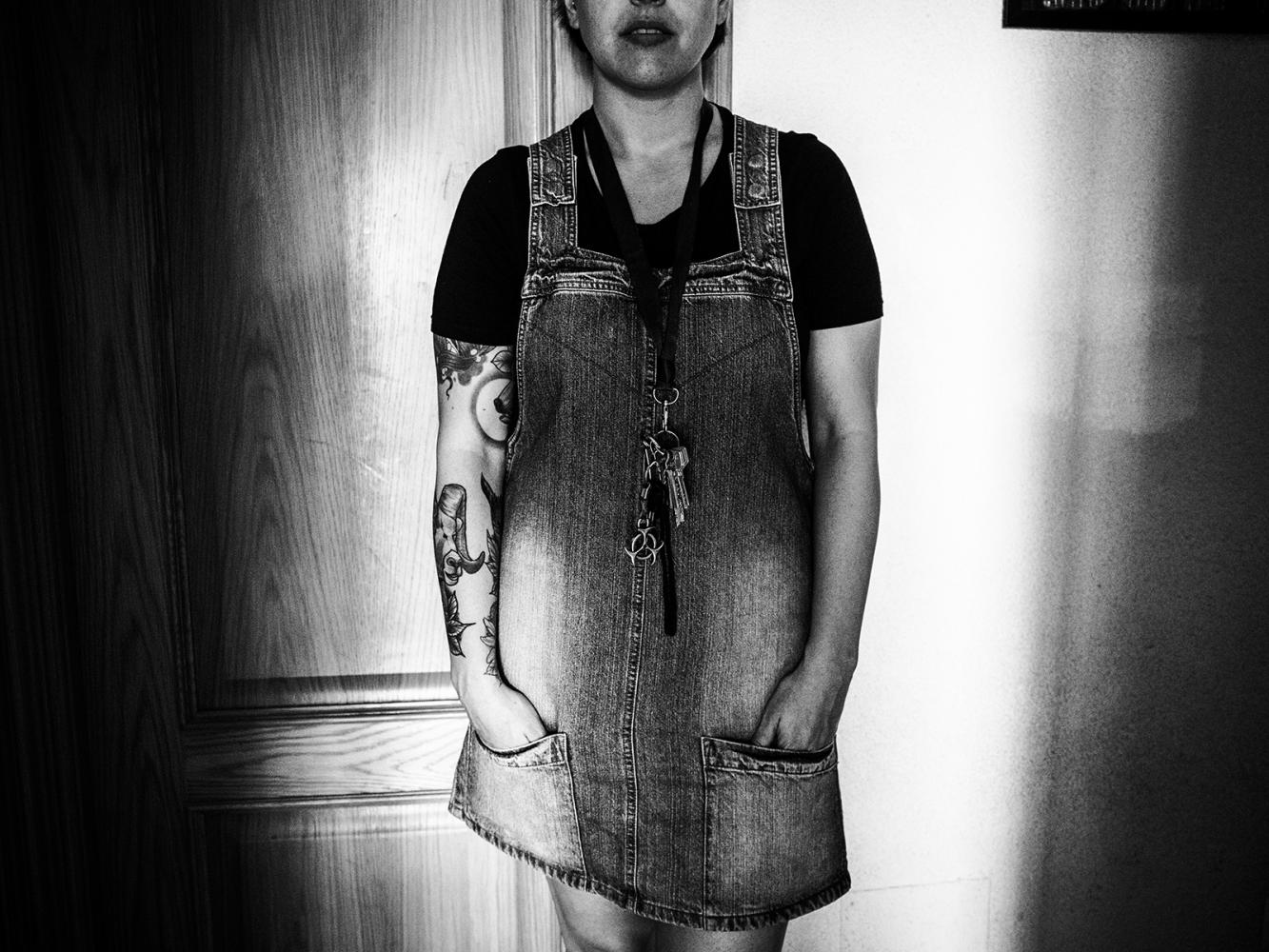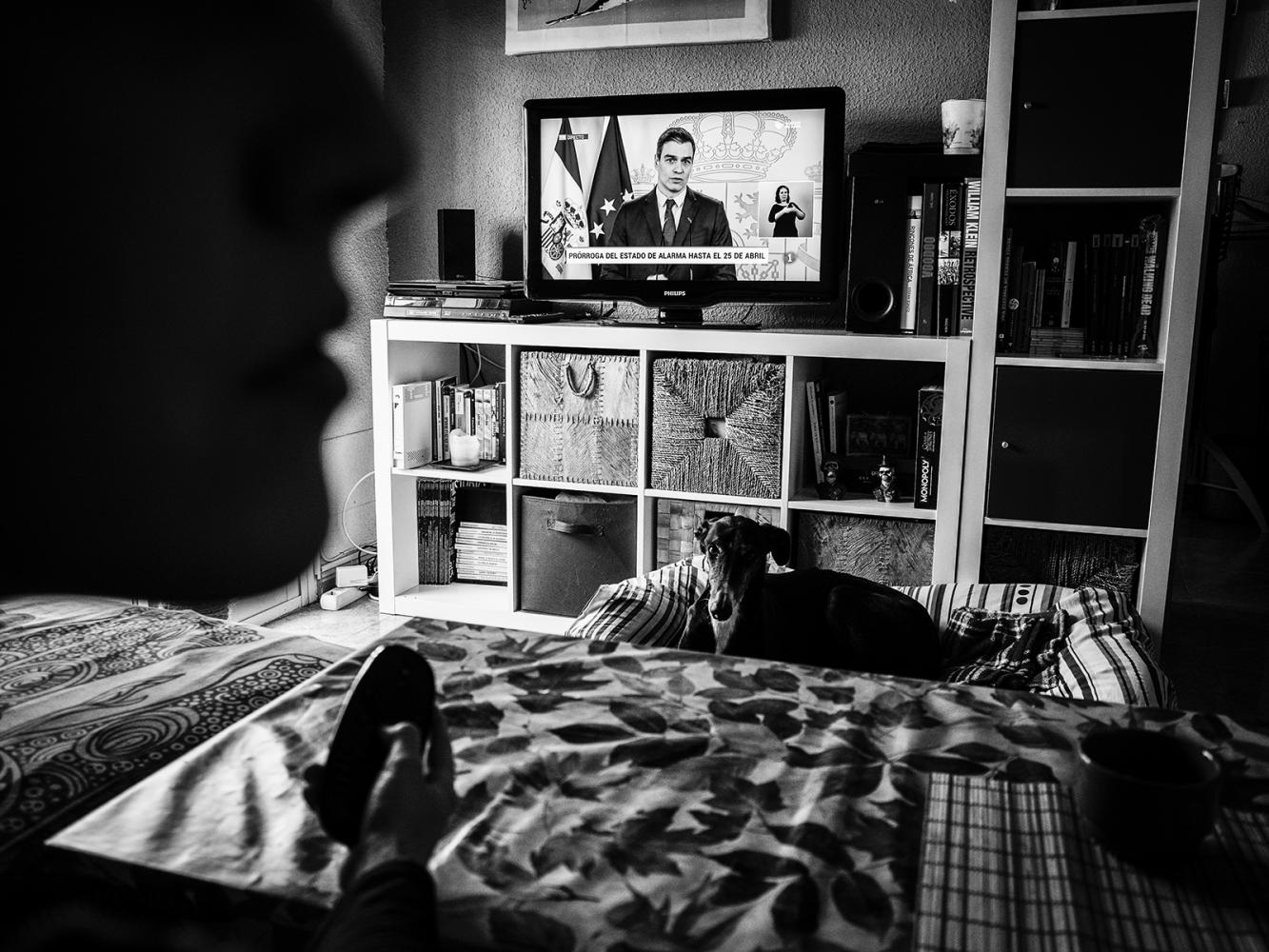Lethargy.
On March 11 the WHO Director-General, Tedros Adhanom Ghebreyesus, declared at a press conference the existence of a global pandemic due to the 2019-NCov9 coronavirus. According to data from Johns Hopkins University (Maryland, USA) there are currently more than 30 million infected people in the world, with Spain being the country with the most infections in the European Union.
Coronaviruses are an extensive family of viruses that can cause disease in both animals and humans, causing respiratory infections ranging from the common cold to other more serious conditions such as Middle East syndrome (MERS) and acute respiratory syndrome severe or SARS. The new virus, highly contagious by human contact, causes the coronavirus disease commonly known as Covid19, presenting symptoms such as fever, cough, shortness of breath and loss of smell. People with respiratory, cardiovascular and elderly problems are considered a high-risk population, and in a high percentage can cause them death.
The first cases are detected in the Huanan wet markets in the city of Wuhan (China) between December 12 and 29, 2019. Although there is still no specific cause of the origin of the new virus, it is declared biological risk. On January 31, 2020, the first person infected by Covid19, of German origin was detected in Spain, on the Island of La Gomera.
The Government of Spain decrees on March 14, 2020 the State of Alarm by the Royal Decree 463/2020 and the confinement of the country's population, of about 45 million inhabitants, due to the situation of health crisis provocated by the number of infected by coronavirus, which during this first period exceeded 700,000, with more than 30,000 deaths. ( data until the so-called second round of infections in October 2020 ). Are taken immediately contingency measures such as the use of masks, surgical gloves, safety distances of up to 2 metres between people, house confinement, time restrictions on the public highway, limited capacity in supermarkets or closure of all types of establishments, only remaining opened the strictly necessary ones such as large food supermarkets, gas stations or pharmacies and those determined in the de-escalation process.
According to the Royal Academy of Spanish Language the definition of Lethargy (lethargus) is "the pathological state characterized by deep, inactive and prolonged sleep, typical of some nervous, infectious or toxic diseases." Given the decreed house confinement and the need to document it, this essay shows the day-to-day confinement at home, passing through the different emotional states generated by the nearly 100 days of quarantine, such as anxiety, fear, insomnia, over information in media, exclusive contact with the love ones via telephone and social networks, doubts about what may happen in an uncertain future, a possible outbreak that may arise during the four phases of de-escalation and the social or economic consequences that this situation, that we face for the first time in our history, will cause.
Photography and text David Arribas
Text, edition and Translation Clara Muro
Spain Covid Archive Member.
https://archivocovid.com/autores/david-arribas-a0210-md/
Letargo.
El 11 de marzo el director general de la OMS, Tedros Adhanom Ghebreyesus, declaró en rueda de prensa la existencia de una pandemia mundial por coronavirus 2019-NCov9. Según los datos de la universidad Johns Hopkins (Maryland, EE. UU) actualmente en el mundo hay más de 80 millones de contagiados, siendo Italia y España los países con más infectados de la Unión Europea.
Los coronavirus son una extensa familia de virus que pueden provocar enfermedades tanto en animales como en seres humanos, en los que ocasionan infecciones respiratorias que van desde el resfriado común hasta otras afecciones más graves como el síndrome de Oriente Medio (MERS) y síndrome respiratorio agudo severo o SARS. El nuevo virus, altamente contagioso por contacto humano, causa la enfermedad por coronavirus comúnmente conocida como Covid19, presentando síntomas como fiebre, tos, dificultad para respirar y pérdida del olfato. Se considera población de alto riesgo a las personas con problemas respiratorios, cardiovasculares y personas mayores, pudiendo en un alto porcentaje ocasionarles la muerte.
Se detectan los primeros casos en los mercados húmedos de Huanan en la ciudad de Wuhan (China) entre los días 12 y 29 de diciembre de 2019. Aunque no hay aún una causa concreta del origen del nuevo virus se declara riesgo biológico. El 31 de enero de 2020 se detecta en España, en la Isla de la Gomera, la primera persona contagiada por Covid19 de origen alemán.
El gobierno de España decreta el 14 de marzo 2020 el Estado de Alarma por el Real Decreto 463/2020 y el confinamiento de la población del país, de cerca de 45 millones de habitantes, por la situación de crisis sanitaria debido al aumento del número de infectados por coronavirus que durante este primer periodo que superaron los 700.000 habiendo más de 30.000 fallecidos. (datos ofrecidos por el Ministerio de Sanidad hasta el comienzo de la segunda ola en octubre 2020). Medidas de contingencia como el uso de mascarillas, guantes quirúrgicos, distancias de seguridad de hasta 2m entre personas, reclusión domiciliaria, restricciones horarias para salir a la vía pública, aforos limitados en supermercados, cierre de todo tipo de establecimientos solo permaneciendo abiertos los estrictamente necesarios como grandes supermercados de alimentación, gasolineras o farmacias y los determinados en proceso de desescalada.
Según la Real Academia de la Lengua la definición de Letargo (lethargusv) es “el estado patológico caracterizado por un sueño profundo, inactivo y prolongado, propio de algunas enfermedades nerviosas, infecciosas o tóxicas.” Ante el confinamiento domiciliario decretado y la necesidad de documentarlo este ensayo evidencia el día a día de reclusión en casa, pasando por los diferentes estados emocionales que generan los 100 días de cuarentena, como ansiedad, miedo, insomnio, sobre información constante por parte de los medios, único contacto con personas cercanas a través del teléfono y de redes sociales, dudas ante lo que puede suceder en un futuro incierto , un posible rebrote que surja durante las cuatro fases de desescalada y las consecuencias sociales y económicas que provocará esta situación a la que nos enfrentamos por primera vez.

























